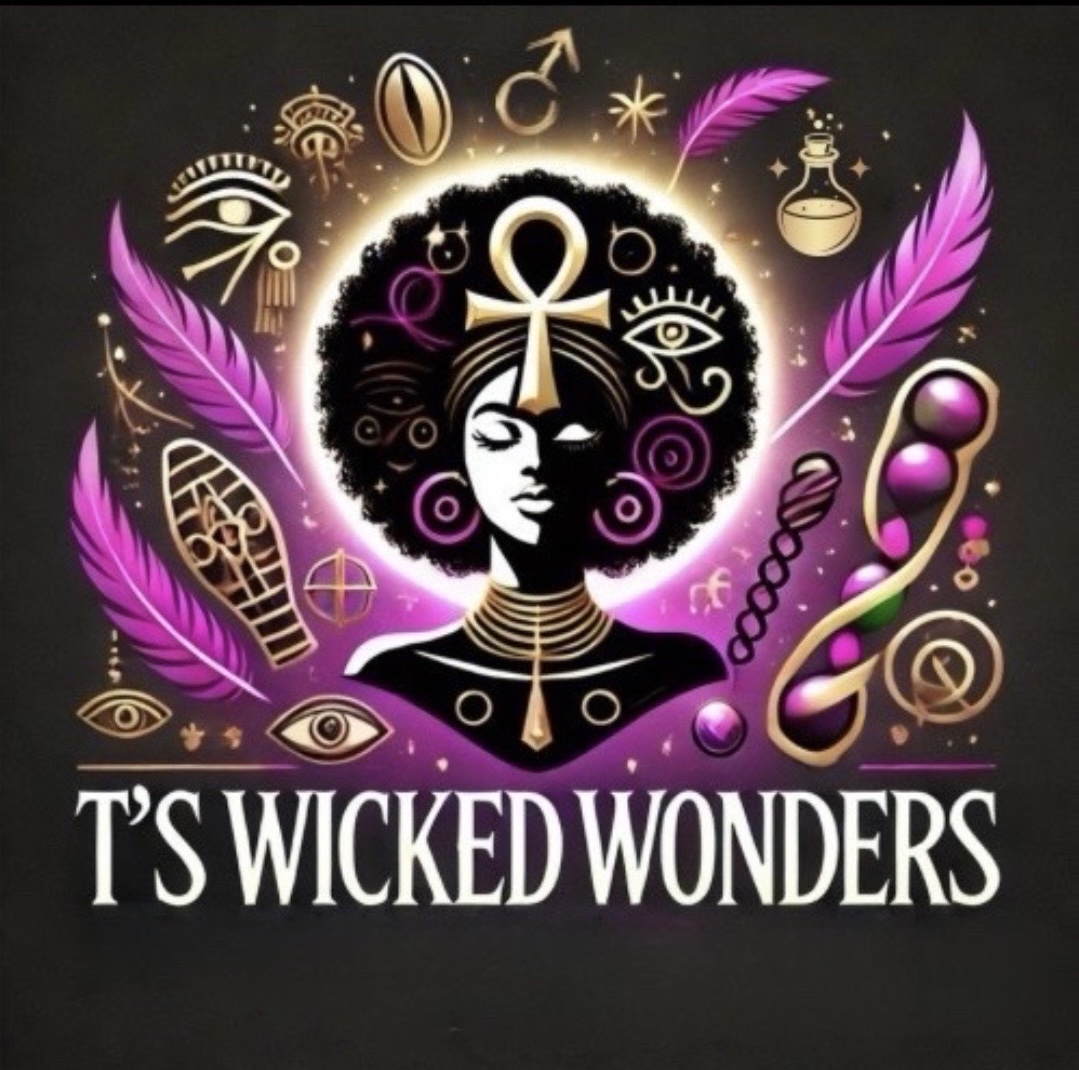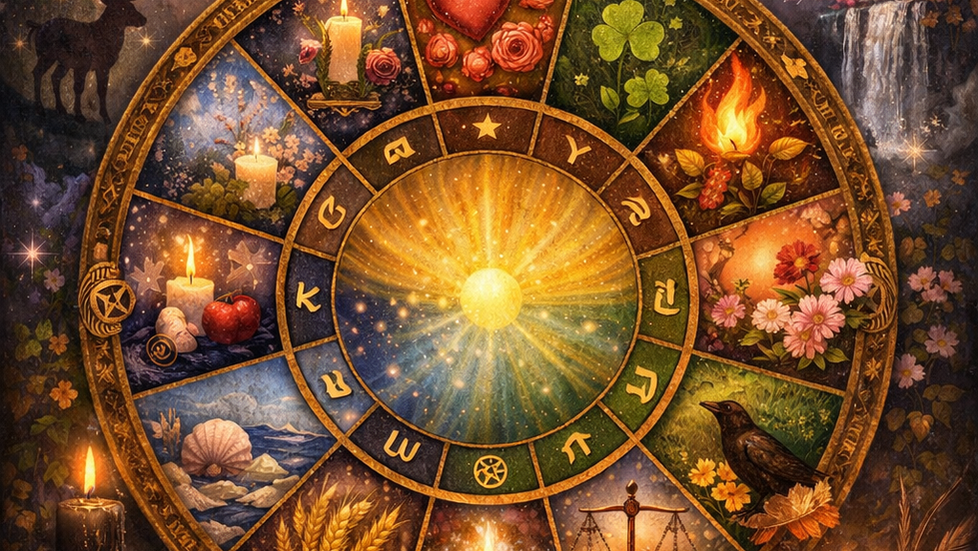
God in Different Practices: One Light, Many Paths
- T's Wicked Wonders

- Sep 29, 2025
- 3 min read
To speak of God is to step into mystery. Every culture, every people, every seeker has reached for words, symbols, and rituals to explain the unexplainable. The Divine has been called Father, Mother, Source, Creator, Spirit, Great Mystery, Infinite, and Love itself. The truth is simple and complex at once: God is not confined to one image, practice, or name. Yet in every tradition, God is present—like one flame illuminating countless candles.
Christianity: God as Love and Salvation
In Christianity, God is Creator, Father, and Redeemer. God takes form through the Trinity: the Father who births creation, the Son (Jesus Christ) who walks among humanity, and the Holy Spirit who breathes life into the faithful. Christianity emphasizes relationship: a God who hears prayers, forgives sins, and offers salvation through love and sacrifice. For many Christians, God is not distant but deeply personal—shepherd, healer, and companion through every valley.
Islam: God as the One Beyond All
In Islam, God is Allah, the One who has no equal, no likeness, no beginning, and no end. God is known through the 99 Names—Al-Rahman (The Most Merciful), Al-Haqq (The Truth), Al-Wadud (The Loving One). Muslims honor God through prayer, fasting, charity, and remembrance. In Islam, God is not seen or imagined but felt and known in surrender. Worship is about realigning the self with the will of the Divine, bowing heart and body to the eternal Oneness.
Judaism: God of Covenant and Mystery
In Judaism, God is the Eternal—sometimes called Adonai, Elohim, or simply HaShem (“The Name”). God is at once the Infinite Ein Sof and the God of covenant who walks with the people of Israel, speaking through Torah and prophets. The relationship with God is living, dynamic, and at times even contentious—questioning, wrestling, and seeking understanding are sacred acts. Judaism teaches that God’s presence can dwell in study, ritual, justice, and community.
Hinduism: God in Many Forms, One Source
Hinduism paints the Divine in vibrant color. God is Brahman, the formless, eternal reality. Yet Brahman also expresses as countless deities—Vishnu the Preserver, Shiva the Destroyer, Kali the Fierce Mother, Lakshmi the Bringer of Prosperity. Each god or goddess is a facet of the Infinite, a way for humans to connect personally with the divine essence. Chanting mantras, performing puja (rituals), and meditating are all ways to approach the Divine. The message is clear: many forms, one Source.
Buddhism: The Divine in Awakening
Buddhism does not center on a creator God, yet divinity flows through its teachings. Here, the sacred is found in enlightenment—the realization of our true nature. Some traditions honor celestial Buddhas and bodhisattvas as divine manifestations of compassion, guiding humanity toward liberation. The Divine is not external but awakened within; God is the spark of Buddha-nature present in all beings.
Indigenous Traditions: God in the Land and Ancestors
For many Indigenous peoples, God is the Creator, Great Spirit, or Breath of Life that animates all existence. The Divine is not separate from the world but woven through rivers, mountains, animals, stars, and ancestors. To pray is to live in right relationship—with nature, with community, with the unseen spirits. Ritual, song, dance, and offering are ways to honor this sacred balance. God is not far away, but in every stone, every fire, every heartbeat.
African Spiritual Systems: God Through the Orishas
In Yoruba and other African traditions, God is Olodumare—the Supreme Being, the source of all power and existence. Yet Olodumare is accessed through the Orishas, divine beings who embody forces of nature and aspects of life: Oshun (love and rivers), Shango (justice and thunder), Oya (transformation and storms). In these traditions, the Divine is deeply interactive, present in ritual, divination, drumming, and community. God is not an abstract idea but a living reality in daily life.
Mystical Traditions: God as Beloved and Union
Mystics across religions—Sufis, Kabbalists, Christian contemplatives, yogis—speak of God in the language of love. Here, the Divine is not only Creator but Beloved. Rumi, the Sufi poet, writes of God as the Friend the soul longs for. Jewish mystics speak of uniting with the infinite light of Ein Sof. Christian mystics describe God as the flame of the heart. Across all, the mystic path sees God as an experience, not just a belief—union beyond words.
One God, Many Names
Though the language changes, the essence is constant. God is One and Many. God is both near and beyond comprehension. God is in the stars and in our bones.
Each tradition is like a river, flowing in its own direction, yet all rivers eventually meet the ocean. And the ocean—that vast, immeasurable depth—is God.












Comments